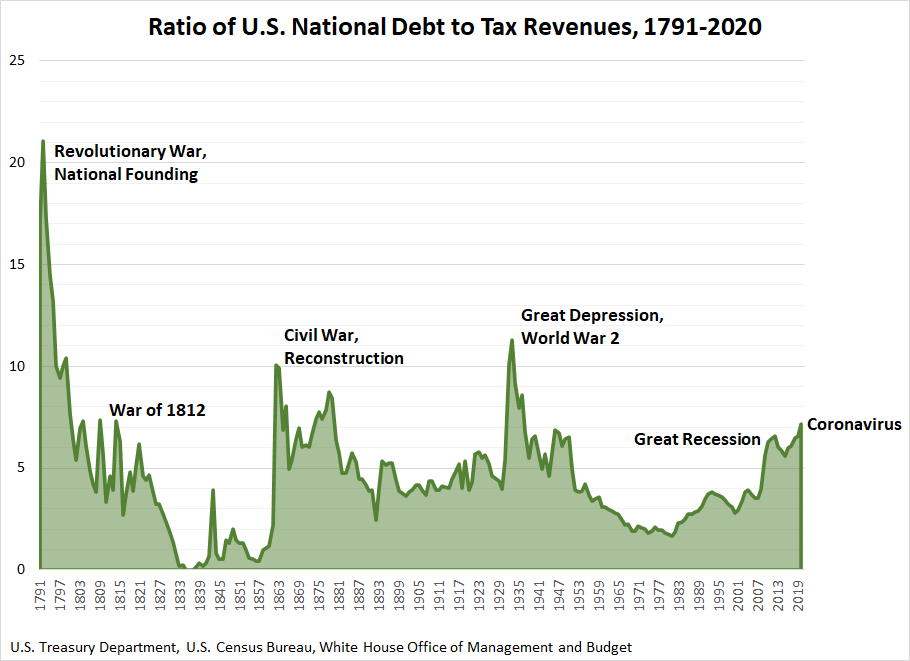Coronavirus Relief Blows Up the Federal Budget
We’re starting to get the first independent analysis of the impact of the measures the U.S. Congress has passed to provide relief will have on the U.S. government’s fiscal situation. The Committee for a Responsible Federal Budget is first out of the gate with its preliminary findings, here is their main takeaway:
Our latest projections find that under current law, budget deficits will total more than $3.8 trillion (18.7 percent of GDP) this year and $2.1 trillion (9.7 percent of GDP) in 2021. We project debt held by the public will exceed the size of the economy by the end of Fiscal Year 2020 and eclipse the prior record set after World War II by 2023.
Keep in mind that prior to the coronavirus pandemic, the U.S. government was planning to spend $4.8 trillion in its 2020 fiscal year, borrowing $1.1 trillion. With the CRFB’s estimate of $3.8 trillion, the U.S. government will be borrowing more than the $3.7 trillion it had hoped to collect in taxes for the year.
Speaking of which, the U.S. government had been running ahead on its 2020 tax collections through March 2020, despite the early coronavirus-related quarantine orders to close businesses and for residents to stay at home.
The chart below puts the federal government’s debt into historical perspective, showing the ratio of the U.S. government’s total public debt outstanding to its annual tax revenues for each year from 1791 through 2020, with the data for 2020 assuming it comes close to the $3.7 trillion it was previously expecting to collect.
At a minimum, the coronavirus pandemic will put the U.S. government’s fiscal situation on par with the biggest existential crises in the United States’ history.
We’re still waiting for the Congressional Budget Office to weigh in with its projections of the fiscal impact of the federal government’s coronavirus relief measures. They haven’t been heard from since early March, where they provided no analysis of the $2.2 trillion CARES Act of 2020 before its rushed passage.



















